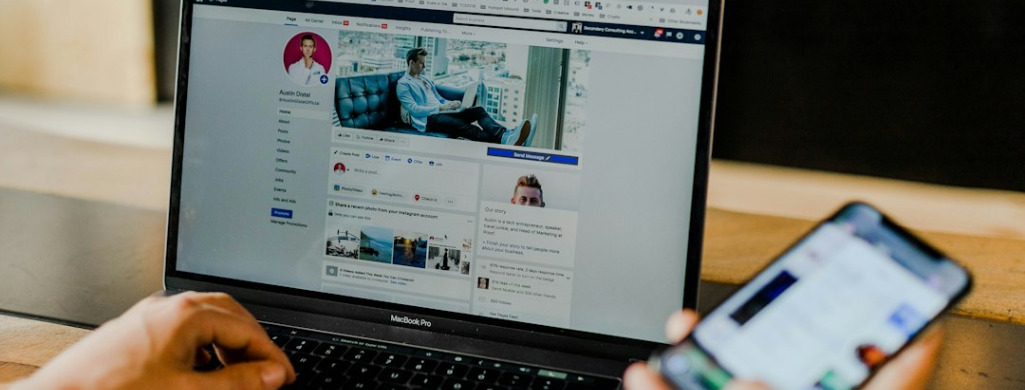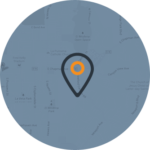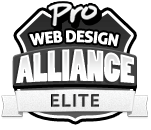Facebook Pages vs. Facebook Groups
Several social media platforms offer free and low-cost ways for brands to engage with large groups of potential customers. Facebook is probably the one most online marketing experts would agree provides benefits for every type of organization, business, or individual. Facebook has far more users than any other social network, and it also allows a great deal of versatility in its use. One way it does this is to enable you to create a Page, Group, or both for your business needs. Each of these tools has its particular advantages. Let’s examine the difference between a Facebook Page and a Facebook Group to determine which best reaches your target demographic.
Facebook Pages
A Facebook Page is very similar to a regular profile page except that these pages are utilized for marketing purposes rather than for an individual’s personal use. Pages are intended for businesses, organizations, brands, celebrities, and others. Facebook Pages offer several features that individual personal profiles don’t. One of the most useful of these may be Page Insights. These tools allow you to monitor the demographics of your users and what actions are being taken in response to your posts. Such insights let you see how well your updates are performing. In addition, you can assign other team members as admins to your page so that you don’t have to handle all of the social media tasks alone. There are also third-party apps with which you can spruce up your page, which gives your users the ability to perform actions like shop, sign up for your email list, and follow your company’s other social profiles without ever leaving your Facebook Page. You can even schedule your posts in advance for efficiency.
Facebook Groups
While not explicitly intended for promotion, Facebook Groups can give brands a supplementary outlet for building fan engagement. These groups are a place where people come together around a common interest. Anyone can create a group, which can be used for nearly any purpose. Groups can be public, closed, or secret. These varying levels of privacy add even more versatility to groups. As a marketer, Facebook Groups allow you to tailor your brand’s communication precisely to the needs and desires of your audience. Groups can be a space for a company’s fans to share recipes or uses of a particular product. A group can also be an appropriate forum for collecting user feedback on client satisfaction, product suggestions, or customer service issues. Bloggers or subject experts may form groups to teach aspects of a particular topic, building a reputation as a guru and creating demand for their e-books or webinars. Facebook Groups are practically limitless in their utility.
Key Differences
A Facebook group and a Facebook page are tools for creating a presence on the platform, but they serve different purposes and are intended for different types of users.
A Facebook group is a space for a specific group to discuss and share content. Groups are typically created around a particular topic or theme. They can be public, meaning anyone can see and join the group, or private, meaning the group’s administrator must approve membership. Facebook groups are intended to be more personal and a great way to connect with others with similar interests.
On the other hand, a Facebook page is meant to represent a business, organization, or public figure. Pages are public, allowing any Facebook user to follow the page to receive updates. Pages are meant to be more professional and are an excellent way for businesses and organizations to connect with their customers and fans.
Features & Capabilities
Facebook groups and pages have different features and capabilities. Here are some of the key differences between them:
Features of Facebook Groups:
- Members: Groups have members who can participate in discussions and share content. Members can be approved or rejected by the group administrator.
- Privacy: Groups can be set to public or private, and their content is only visible to members.
- Discussion: Groups primarily focus on discussions and are great for members to connect and share information.
- Notifications: Group members can choose to receive notifications when new content is posted so they don’t miss anything.
- Events: Groups can create events and invite members to attend.
Features of Facebook Pages:
- Followers: Pages have followers who can receive updates from the page but cannot participate in discussions or share content.
- Public: Pages are public, and anyone, not just followers, can see the content shared.
- Promotions: Pages have more promotional tools, such as boosted posts and advertising, to help reach a wider audience.
- Insights: Pages can access Insights, a set of analytics tools that provide insights into the page’s performance.
- Apps: Pages can install Facebook apps to add additional functionality to the page, such as an online store.
In summary, Facebook groups and pages have different features that cater to other purposes. You should use a group if you’re looking for a space for members to discuss and share content. If you want to represent a business, organization, or public figure, you should use a page.
Should a small business have both a Facebook page AND a Facebook group?
It depends on the specific needs and goals of the small business. A Facebook group and a page can give a business additional opportunities to connect with and engage its audience. Still, managing both requires more time and effort.
Here are some benefits of having both a Facebook group and a page for a small business:
- Increased reach: A page can help a business reach a wider audience, while a group can provide a more personal and intimate space for customers to connect with the company and each other.
- Different types of engagement: Pages are great for broadcasting information and promotions, while groups are better for fostering discussions and building a community.
- Better customer service: A group can be used as a customer service platform, where customers can ask questions and get help from the business or other customers.
- Increased brand loyalty: By building a community through a group, a business can increase customer loyalty and create more opportunities for repeat business.
In conclusion, whether a small business should have both a Facebook group and a page depends on its specific needs and goals. A group may be beneficial if the business wants to build a community and foster personal connections with customers. A page may be a better option if the business wants to reach a wider audience and promote its products or services. Both can be useful in different ways and may be the best solution for some businesses.
Can you convert a Facebook page into a Facebook group or vice versa?
No, converting a Facebook page directly into a group or vice versa is impossible. If you have a page and want to create a group, or if you have a group and want to create a page, you will need to create a new one.
However, you can transfer some information from one to the other. For example, if you have a page and want to create a group, you can invite your followers to join and share information from your page in the new group. Similarly, if you have a group and want to create a page, you can share information from the group on your new page.
It’s important to note that the features, audience, and purpose of a Facebook page and a group are different, so it’s essential to carefully consider your goals before creating one or the other. Understanding your goals will help you make the best decision for your business or organization.
Can you connect a Facebook business page to a group?
Yes, it is possible to connect a Facebook page to a group. By connecting a page to a group, the administrator can post updates and interact with group members as the page rather than as individuals.
Here’s how to connect a page to a group:
- Log in to Facebook and go to the group you want to connect to your page.
- Click on the three dots (…) in the top right corner of the group and select “Add Member.”
- Search for your page and select it from the list of results.
- Click “Add.”
Once the page is added as a group member, you can post updates and comments and participate in discussions on the page. This can be useful for businesses and organizations that want to interact with their audience more personally and engagingly and to build a community around their products or services.
It’s important to note that when a page is connected to a group, it is treated as a group member rather than the administrator. This means that the page will be subject to the same rules and restrictions as other group members and unable to manage the group.
Is it a good idea to connect a page to a group?
Connecting a Facebook page to a group can be a good idea for businesses and organizations that want to build a community and foster personal connections with their customers. By connecting a page to a group, the business or organization can interact with group members as the page rather than as an individual, which can help increase visibility and engagement.
Here are some benefits of connecting a page to a group:
- Increased engagement: By connecting a page to a group, the page administrator can participate in discussions and share content with group members, which can help to increase engagement and build relationships.
- Improved customer service: A group can be used as a customer service platform, where customers can ask questions and get help from the business or other customers. By connecting a page to a group, the business can more efficiently respond to customer questions and provide support.
- Increased brand loyalty: Building a community through a group can increase customer loyalty and create more opportunities for repeat business.
It’s important to remember that when a page is connected to a group, it is treated as a group member rather than as the administrator. This means that the page will be subject to the same rules and restrictions as other group members and will be unable to manage the group.
Connecting a Facebook page to a group can be a good idea for businesses and organizations that want to build a community and foster personal connections with their customers. However, it’s essential to understand the limitations and responsibilities associated with being a group member and ensure that it aligns with your goals and objectives.
So, Who Is the Admin of the Group?
The administrator of a Facebook group is the person who created the group or has been added as an administrator by the original creator. Administrators have full control over the group, including the ability to approve or reject membership requests, manage posts and comments, and change the group’s settings and privacy.
In a group connected to a Facebook page, the page is treated as a group member and does not have administrative privileges. The group administrator is still responsible for managing the group, and the page can only participate and post as a member.
Keep in mind that when a page is connected to a group, it is subject to the same rules and restrictions as other group members and cannot manage the group. The group administrator is responsible for maintaining a safe and respectful community and ensuring that the group aligns with Facebook’s Community Standards and other policies.
Which Is Best?
No one answers whether a group or a page is best. Each brand’s specific needs determine the answer. If your goal is promotional on a grand scale, a Facebook Page would be most effective in this capacity. Are you looking to facilitate engagement and build rapport with current customers? Find a common theme of interest to them and start a group focusing on it. Many companies and individual marketers will use both tools. This makes sense because the two are complementary for various purposes. It’s almost always a good idea to set up a Facebook Page as your brand’s identifying profile and place to share important information. A group is often desired as a means of achieving more precise goals.
Facebook Pages and Groups each have strengths, and neither is better than the other. Your job is to decide which will be most effective for your purposes and how to use them effectively. That’s the fun part.




